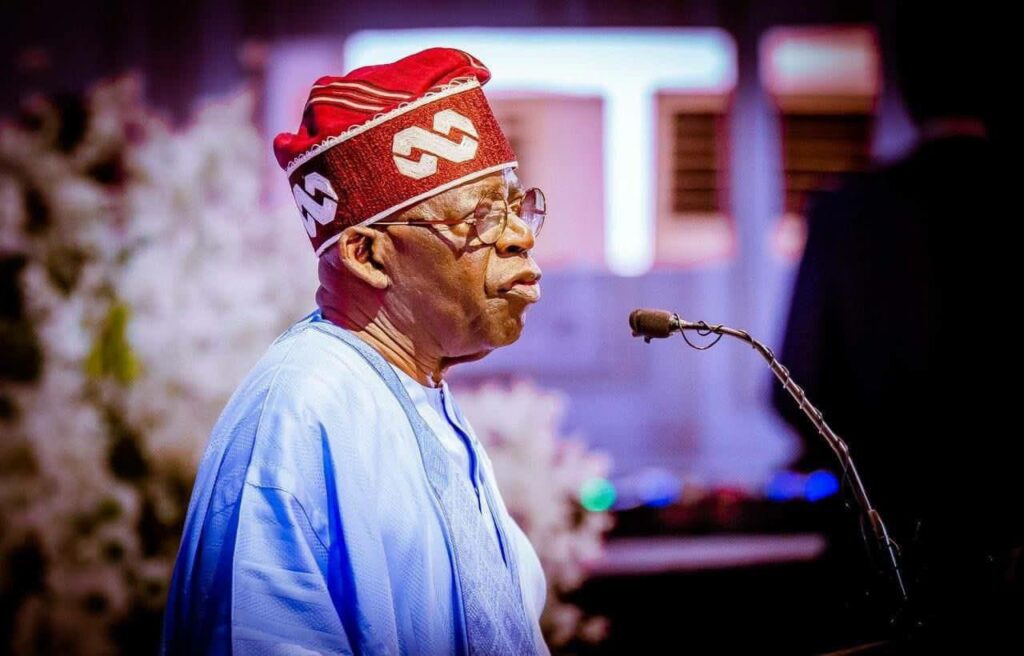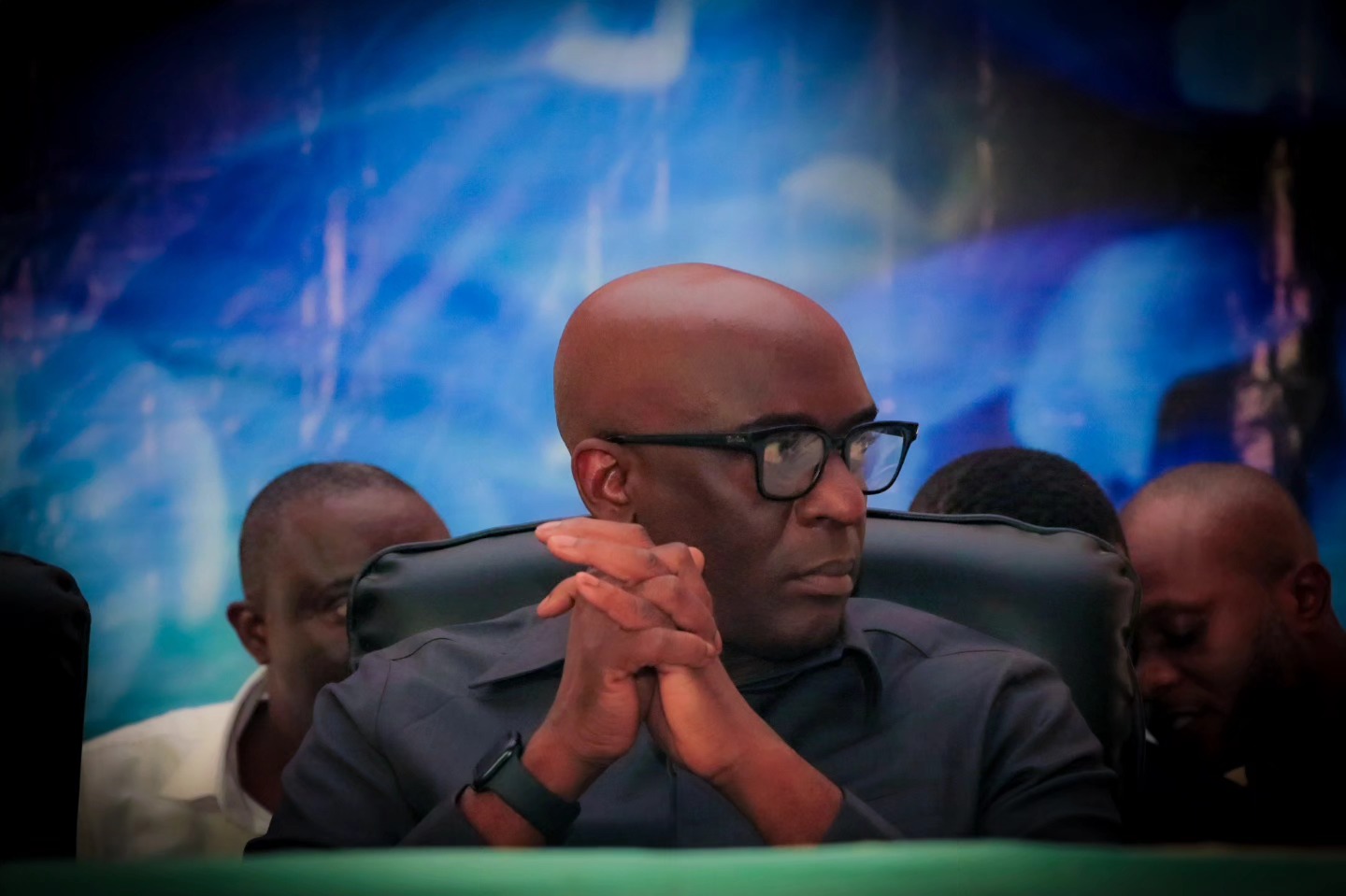Feature/OPED
SMEs: Attracting Quality Foreign Direct Investments

By Timi Olubiyi, PhD
In the Nigerian context, a foreign direct investor is an individual or entity resident abroad that has acquired, either directly or indirectly, at least 10 per cent of the voting power of an enterprise resident in Nigeria.
The direct investor could be any of the following in real terms: an individual, a group of related individuals, an incorporated or unincorporated enterprise, a public or private enterprise, a group of related enterprises, or any of the mentioned combinations.
Foreign Direct Investment (FDI), on its part, is an investment from a party abroad into a business or enterprise in Nigeria to establish a lasting interest. Simply put, FDI is when a company or individual abroad has lasting investment interest, which is obtained by at least 10 per cent of the voting power in a business in Nigeria.
The lasting interest of the investor differentiates FDI from other forms of foreign investment including foreign portfolio investments, where investors passively hold securities in Nigeria from a foreign country.
A greater number of countries strive to attract FDIs because of its acknowledged benefit as an instrument of economic development.
Historically, Nigeria is one of the countries in Africa with vast demand for goods and services in form of FDIs, sitting in the third place behind Egypt and Ethiopia, according to the United Nations Conference on Trade and Development (UNCTAD) 2019 World Investment Report.
However, Nigeria has been able to attract some appreciable FDIs over the years. To a greater extent, one of the federal government measures to motivate FDIs is noticeable in the Ease of Doing Business Policy. The policy has been beneficial to SMEs largely and it has helped in driving the inflow of FDIs into the country.
The Central Bank of Nigeria provides FDIs in US Dollars and from the data gathered, it has increased from less than $1billion in 1990 to $1.2billion in 2000, $4.5 billion in 2006 and as of 2019, the FDI inflow into Nigeria was $3.3 billion. The contribution of FDIs to SMEs in Nigeria is significant and it keeps increasing year on year.
Therefore, for SME operators to attract international investors, it will require effort, time, and a lot of confidence.
Nevertheless, it can be an important avenue for the development and expansion of business operations and also stimulate dependable joint ventures, private equities, mergers, and acquisitions.
Some of the main investing countries in Nigeria include the USA, China, the United Kingdom, the Netherlands, and France among others
FDIs can either be conducted horizontally or vertically in terms of strategy. With the horizontal approach, a business expands its domestic operations to a foreign country; that is, the business conducts the same activities but in a foreign country.
For a good understanding of horizontal FDI, a typical example is the involvement of Shoprite outlets in Nigeria.
Whereas, the vertical FDI involves the expansion of businesses into a foreign country by moving to a different level of the supply chain. In other words, a firm conducts different activities abroad but these activities are still related to the main business. Using the same example, Shoprite building and managing malls and other real estate products.
Horizontal investment is the most common and occurs when a company (investee) merges with another company (investor) that offers the same products or services from a different country to become stronger in that market.
This article is looking at the inward-flow of FDIs which refers to investments received by local businesses from foreign entities or individuals.
An example of such is any investment made in Nigeria by different foreign individuals or entities from abroad. There is a large body of knowledge on the benefits local businesses can derive from FDIs, some of which are profitability stimulation, development of human capital more boosts in employment opportunities and job creation, enhanced competitiveness, access to management expertise, improved employee skills, transfer of technology, knowledge transfer, and above all it will contribute to business expansion and profitability.
More importantly, an increase in FDI inflows to a business creates more positive economic effects. FDI offers an important source of capital and it can complement domestic investments of the local businesses.
Additionally, FDIs offer advantages and benefits to foreign investors as well, such as market diversification, boosting competitiveness, tax incentives, lower labour costs, taking advantage of large market size, preferential tariffs, and high demand for goods and services due to the population of Nigeria.
Furthermore, since FDI sometimes flows through trade partners, mergers and acquisitions, and joint ventures, this can bring better managerial and organisational skills into local SMEs.
Nonetheless, attracting international investors to your business can be a daunting task anyway, though if you create time and effort, it will reap the desired gains.
Attracting foreign investment can be simple if your company does it the right way. However, the most important parts of attracting international investors are a strong business model, good business structure and culture, impressive infrastructure quality, huge market size, return on investment, and innovation. These are some of the factors that usually attract foreign investment to a local business.
SME operators should consider the following guidelines and advice to attract FDIs into their prospective businesses: Compile significant data that shows the business’s success and trend in your current financials.
Projections on how you plan to continue that success with adequate supportive data should be gathered. Documentation of how your business will work under the proposed new arrangement and the commercial viability should be prepared. As an experienced SME operator, consider having a list of potential pitfalls and how you plan to navigate them for the investor to understand the inherent business risk and their mitigants.
As an SME operator, you should also be able to show what an investor could gain investing in your business, which is the return on investment. Having detailed information about how investing in your business is beneficial to the investors should similarly be gathered. If possible, prepare an information memorandum. FDIs will expect you to know everything about your business and how it will function with additional shareholders or equities, so work on this.
You should also educate yourself on the cultural and business norms of the countries of your prospective investors, as ignorance or miscommunication can be tragic for a business relationship.
The big question is can the investor easily take profits out of the country and repatriate, or are there local restrictions? All government regulations, policies, and approval needed should be compiled and make sure you have all the process detailed and you can provide an accurate timeline for getting documentation sorted.
Above all, adopt aggressive investment promotion on social media and use international networking events and agents to search for investors and build up interest. Make sure all needed information on your business is full and concise for review by your prospective investors.
With these aforementioned tips, your business can find an effective foreign investor to help your business grow.
However, if you have specific concerns about enhancing or on how to build an effective strategy to attract FDIs to your business, you may need to urgently reach out to a professional for essential advice. Good luck!
How may you obtain advice or further information on the article?
Dr Timi Olubiyi is an Entrepreneurship and Small Business Management expert with a Ph.D. in Business Administration. He is a prolific investment coach, business engineer, Chartered Member of the Chartered Institute for Securities & Investment (CISI), and a financial literacy specialist. He can be reached on the twitter handle @drtimiolubiyi and via email: drtimiolubiyi@gmail.com, for any questions, reactions, and comments.
Feature/OPED
Paradox of Profitability: Nigeria’s Banks, Bogus Earnings, and Recapitalisation Dilemma

By Blaise Udunze
Nigeria’s economy has been buffeted by storms in recent years with currency volatility, galloping inflation, surging interest rates, and dwindling consumer purchasing power. Yet, amid these macroeconomic headwinds, corporate organisations, especially banks, continue to post eye-popping profits.
Five of Nigeria’s top 10 banks reported a combined pre-tax profit of N4.6 trillion in 2024, a 70 per cent increase from the previous year with Zenith Bank and Guaranty Trust Holding Company crossing the trillion-naira mark for the first time.
This paradox raises a fundamental question: how are banks thriving on paper in an economy where businesses are shutting down, households are under severe strain, and government debt is ballooning?
As of the first half of 2025, the banking industry finds itself at a crossroads. Barely months after announcing staggering profit results, some in excess of N500 billion amongst commercial banks are now scrambling to meet the Central Bank of Nigeria’s (CBN) recapitalisation directive. Many are racing back-to-back to the capital market to raise fresh funds.
Behind the strong showing of the market leaders lies a deeper concern: a number of smaller commercial banks and regional players are still struggling to formulate credible recapitalization strategies.
Adding to the puzzle is the CBN’s decision to bar lenders from paying dividends and bonuses, insisting that earnings must be preserved to strengthen capital buffers.
For the average Nigerian, the contradiction is glaring: how can banks boast of record profits yet struggle to raise capital to meet regulatory requirements?
Analysts argue that much of these “profits” are not the outcome of robust productivity or genuine market expansion but rather accounting gains from naira devaluation, speculative positions, high interest rate spreads, loopholes in financial reporting, and arbitrary charges.
Profits on Paper, Weak Capital in Reality
Nigerian banks are witnessing a slowdown in profit growth in 2025 as the extraordinary windfalls from naira devaluation and high interest rates taper off.
Data from the Nigerian Exchange Limited (NGX) show that the combined after-tax profit of nine major lenders, including Zenith, GTCO, Access, UBA, Fidelity, Wema, Stanbic IBTC, FCMB, and FBN Holdco rose marginally by 0.74 per cent to N1.35 trillion in Q1 2025, compared to the record 274.3 per cent surge posted a year earlier.
Much of the earlier profit boom was driven by the floating of the naira in mid-2023 and subsequent devaluations, which allowed banks to book huge foreign exchange revaluation gains simply by holding dollar assets. However, analysts warn these paper gains were non-cash items that added little to banks’ real capital strength.
The apex bank has since barred lenders from deploying such gains for dividends or operating expenses, insisting they be held as buffers against future currency shocks.
With foreign exchange gains now normalising and credit expansion still sluggish, analysts say banks’ reliance on one-off windfalls has exposed underlying weaknesses in core operations such as lending, deposit mobilisation, and fee income.
“The era of abnormal profit growth is over,” said Tony Brown, a banking analyst in Abuja. “The numbers looked strong on paper, but the real test will be how banks sustain earnings through traditional banking activities.”
“The so-called profits are accounting gymnastics,” a Lagos-based analyst said. “They look good in shareholder reports but add little to the core equity needed for recapitalization.”
Banks Profit as Rate Hikes Widen Interest Spreads, squeeze Borrower
Nigerian banks are cashing in on wide interest rate spreads, boosted by the CBN’s tight monetary stance, which has kept the policy rate at 27.5 per cent into 2025. While lending rates have soared into double digits, deposit rates remain low, leaving savers shortchanged and borrowers under pressure.
Analysts say this asymmetric response allows banks to preserve profitability at customers’ expense. “Simply buying government Treasury bills with customers’ deposits was enough for banks to return profit with yields reaching 25 per cent,” said Abuja-based analyst, Chike Osigwe. “On top of that, they charge high lending rates while paying much less to depositors.”
Professor Uche Uwaleke, President of the Capital Market Academics of Nigeria (CMAN), noted that Tier-1 banks are declaring huge profits despite weak economic growth. He warned of a growing disconnect between banks’ fortunes and struggling sectors like manufacturing and agriculture, stressing the need to ensure customers and the real economy share in banking gains.
Mirage of profits powered by Arbitrary Charges
Nigerian banks’ record profits in 2024 have been linked not only to monetary policy tailwinds but also to a surge in arbitrary charges imposed on customers. Despite CBN’s repeated sanctions for breaching its Guide to Charges, lenders continue to rack up billions from fees on transfers, withdrawals, ATM use, account maintenance, SMS alerts, and other deductions.
With over 312 million active bank accounts, these charges now contribute more to profitability than traditional lending or FX operations. Five tier-1 banks alone posted N4.6 trillion in pre-tax profit in 2024, a 69.5 per cent jump from the previous year.
“Banks have turned customers into easy prey,” said financial reform advocate Dr Bruno Agbakoba. Consumer advocate Mrs Toun Adeniran added that households and SMEs are being “drained by unexplained deductions.” A former CBN official admitted enforcement is “a challenge” despite sanctions. In the words of one customer, Nigeria’s banking system has become “a pain in the neck” profitable for lenders, but punishing for households and enterprises struggling to survive in a hostile economic environment.
Critics also warn that this reliance on “blood profits” discourages innovation and credit expansion, further widening the gap between banks’ fortunes and the struggles of businesses and households. Michael Owhoko, a Public Policy Analyst, warned that instead of boosting their image, the massive profits of Nigerian banks are fueling negative public perception, as many views their practices as harmful to individuals and especially small and medium businesses.
Why Banks Are Quietly Rationing Liquidity
Towards month ends, Nigerians are been frustrated by stalled online transfers, frozen mobile apps, and endless queues at ATMs and banking halls. While banks blame “network issues,” analysts say the real problem runs deeper.
With naira devaluation, inflation, and the CBN’s tight monetary stance squeezing liquidity, banks are quietly restricting access to cash to stabilise their books. “When banks throttle withdrawals or delay digital transactions, it is often a survival tactic,” a Lagos-based analyst explained, noting that recapitalization pressures have worsened the strain.
The CBN’s new recapitalisation directive has raised minimum capital thresholds for banks, forcing many institutions to restructure their balance sheets. With dividend payouts curtailed and fresh capital requirements looming, banks are under immense pressure to conserve every naira they can. Restricting customer access through “network downtimes” has quietly become one of the industry’s unspoken strategies.
Banks Race to Meet New Capital Thresholds
With inflation and naira depreciation eroding the old capital base, the CBN has raised minimum capital requirements: N500 billion for international banks, N200 billion for national banks, N50 billion for regional and merchant banks, and N20 billion and N10 billion for national and regional non-interest lenders, respectively. All banks must comply by April 2026.
So far, nine (9) banks: including Access Holdings, Zenith Bank, Stanbic IBTC, Wema Bank, Lotus Bank, Jaiz Bank, Providus Bank, Greenwich Merchant Bank and GTBank have met the target. FirstBank’s oversubscribed rights issue brought in N187.6 billion, with a N350 billion private placement underway. GTBank recently surpassed the benchmark after a N365.85 billion rights issue, raising its capital to N504 billion.
Mid-tier lenders such as FCMB and Fidelity Bank are still raising funds, though analysts expect them to succeed given strong investor appetite. Fitch Ratings noted that most banks are likely to meet the new thresholds ahead of deadline.
While the policy aims to fortify Nigeria’s banking system against shocks, it has exposed the contradiction between glossy profit declarations and actual capital adequacy. If profits were as robust as reported, banks would not be racing to the capital market or wooing investors for fresh injections.
Dividend and Bonus Restrictions
To compound matters, the CBN recently restricted dividend payouts and executive bonuses. This move, while unpopular among shareholders, underscores the regulator’s concern that banks are not retaining enough earnings to build capital buffers.
This temporary suspension, according to the CBN, is part of a broader strategy to reinforce capital buffers, improve balance sheet resilience, and ensure prudent capital retention within the banking sector.
Meanwhile, Nigerian banks paid a record N951 billion in dividends to shareholders in 2024, representing an 87 per cent increase from the previous year.
For investors, it has been a rude awakening. Shareholders were promised juicy returns based on the record profits, but now the CBN is saying those same banks can’t afford to pay dividends. Something doesn’t add up.
Shadows of Creative Accounting in Banking Sector
Allegations of creative accounting continue to dog Nigeria’s banking sector, with analysts warning that dazzling profit numbers may not always reflect underlying reality. While not all institutions engage in such practices, the structural weaknesses of the financial system create room for manipulation.
“The financial sector regularly distorts earnings through creative accounting,” warns Bolatito Bickersteth of research firm Stears. “A significant portion of profit often lies in non-cash items, making true viability difficult to assess.”
One common tactic is the smoothing of earnings through frontloading expenses or deferring liabilities. Provisions for bad loans, for instance, are sometimes delayed, making banks appear healthier than they are. Similarly, loan books are often overstated, with risky credits classified as performing or backed by inflated collateral. This practice was central to the 2009 banking crisis that forced the CBN to sack several CEOs. Mercy Okon, Investment Research Specialist at Parthian Securities, emphasizes the systemic impact, “Huge profits seen in banks were due to unrealized FX gains, heightened interest income, and boosted transaction fees, not necessarily loan growth or real sector lending.”
Another area of concern is tax arbitrage, where lenders exploit gaps between tax rules and CBN guidelines to minimize taxable profits. Beyond that, some institutions reportedly use subsidiaries and offshore accounts to mask losses or inflate revenues, creating balance sheets that look stronger than reality.
Experts also fault the country’s weak auditing culture. Many banks rely on local audit firms with close management ties, raising doubts about independence and compliance with global reporting standards. As a result, governance lapses often escape scrutiny until crises erupt.
The big irony, analysts note, is that while Nigerian banks are declaring record profits, they are simultaneously racing to raise fresh capital under the CBN’s recapitalisation directive.
This contradiction, underscores the distortions created by weak oversight and questionable accounting practices.
The Public Illusion of Prosperity
The paradox points to a deeper credibility gap in Nigeria’s corporate financial reporting. To the public, banks appear prosperous, yet in reality, they are thinly capitalized and vulnerable to systemic shocks.
The irony is not lost on Nigerians who endure soaring lending rates, endless bank charges, and poor service delivery, only to be told that their banks are both profit-rich and capital-poor at the same time.
Way Forward:
To restore trust in Nigeria’s banking sector, regulators must enforce stricter consumer protection policies and closely monitor arbitrary charges. Agencies like the FCCPC and NGOs should actively safeguard customer interests, while the CBN ensures fair pricing and balance between lending and savings rates.
Some existing policies driving excessive fees need urgent review to avoid discouraging use of banking services and undermining the cashless policy, especially in an underbanked society.
Banks, on their part, must prioritize transparency, empathy, and integrity to rebuild reputation, while tighter financial disclosures, stronger corporate governance, and truly independent audits are essential for sustainable growth.
The recapitalization drive is long overdue, especially given the rising risks from a fragile economy, dollar shortages, and exposure to sovereign debt. However, unless transparency improves in financial reporting, the cycle of bogus profits and weak fundamentals will persist.
The recapitalization process should be paired with reforms in disclosure standards and stricter audit independence to ensure that profit figures reflect genuine financial strength.
Until then, the paradox remains: Nigerian banks that claim to be “rolling in profits” are the same institutions struggling to muster the funds needed to secure their future.
Blaise, a journalist and PR professional writes from Lagos, can be reached via: blaise.udunze@gmail.com
Feature/OPED
The Problem with Nigeria

By Dr Austin Orette
Is President Bola Tinubu the cause of Nigeria’s problem? Some time ago, I wrote that I did not endorse Tinubu because he will reduce the misery index of Nigeria. I did not endorse him because he will stop corruption and other ills that plague the Nation. I did not endorse him because he is a saint. The only reason I supported him was that of all the candidates, he was the only one with the sagacity to push Nigeria from the status quo of mediocrity.
So far so good, I am not disappointed. He is doing so well. He has ruffled the feathers of the imposters who assumed that Nigeria belongs to them.
The Tax Bill is our ticket to restructuring. I have always believed that the federation cannot progress unless those who believe in unitarism are excommunicated from the bus of progress. They will call Tinubu many names, but he will go down as the author of New Nigeria. We will all be equal in this federation.
I want to live in a country where there is fiscal justice. I want to be certain that the tax that comes from my boozing is not used to sponsor hajj for those who will destroy the establishment of those who sell beer. There is the case of the oil. I am from the Niger Delta. We need 60 percent of the oil and no Sheik from outside the region should tell us what to do. We don’t tell them how to pray. Why are the ports in Niger Delta not operational? We had Koko Port, Warri Port and Burutu Port. We were a country.
My people are tired of applying for a visa to clear goods in Lagos. We are tired of staying in a place that has so much federal money thrown at it but cannot manage to come up with sensible urban and housing policy.
A visit there is a journey of chaos. What are the senators doing? Can they work harder and give the Niger Delta the Dangote Deal? Dangote is in Nigeria with his own refinery and ports. What is next for him? With the way things are going, he might end up with his own currency. Who says monopoly doesn’t pay?
Nasir El-Rufai has been popping up lately, threatening the president with electoral misfortune. Can you imagine the effrontery? He became a governor with Amajiri votes and he did nothing for them. These people think they own Nigeria. Where was he when Buhari filled every position with his and his wife’s relatives?
Restructuring means you spend and manage what you produce. It is the law of the farm. You reap what you sow and don’t raise your livestock in another man’s garden without any compensation. There is Mr. Peter Obi who thinks the road to the presidency is through educating the Almajiris. If it didn’t work for Goodluck Jonathan, why do you think it will work for him? El-Rufai is no fool. He has the Amajiri votes locked up. The solution is to ship the Almajiris to my village. We have highly motivated mothers who will adopt them and turn them into lawyers, engineers, doctors and respectable members of our society. The amajiris are orphans with living parents who don’t care. We can care for them in my village. With 60 % derivation, the sky is our limit. After they come of age and have become very educated, we will send them to the North to recolonize the North.
We need home grown colonizers in the North. They will bring progress faster to the North than the Fulani who are in a race to return to the 7th century.
Now, they will accuse me of asking them to turn their hearts away from the gods of Saudi Arabia to the gods of my village. Who knows, some of them might become educated Imams and not hypocrites who hide Ogogoro in their prayer kettle and underage girls, under their agbada. They will not be hypocrites. This will bridge the gap in the distribution of graduates during NYSC.
Peter Obi should address this. Why should states that have so many Almajiris and no graduates have more NYSC graduates serving than states that are producing graduates? We must correct this Dangote equation. Obi should learn from Tinubu. You don’t placate bullies. We are on the way to a new Nigeria, the end of serfdom. The cacophony all over the place is beginning to be louder than Biafra. The halls of academia have just been opened in Southern Zaria and El-Rufai is apoplectic. He cannot even comprehend that Nigeria can grow beyond one school of aviation. He is inviting Nnamdi Kanu to Dinner and wants to review Nnamdi’s notes. These are interesting times to be alive in my dear country, Nigeria.
We will end up with a federal government that does not baby sit any region. We must have a government that does not rob Peter to pay Paul. No region should become bloated and lazy with excess fat. Those who are addicted to that feeding bottle should be weaned. That is true federalism and equality. Are the Fulani and Biafrans against this? They are five and six. Don’t let their recriminations fool you. They have one agenda. They are one and the same side of a bad coin.
Dr Austin Orette writes from Houston, Texas
Feature/OPED
Socio-economic, Infrastructural and Human Capital Development Blitz: The Ebie Example

By Jerome-Mario Utomi
Barrister Chiedu Ebie, Chairman of the Governing Board of the Niger Delta Development Commission (NDDC), was not physically present at the colourful event, but his presence was powerfully felt via the flowery effusive praises lavished on him by stakeholders, participants and various speakers. He was almost the main item of discourse of speeches and of commendation at the event. And why? His name was a recurring refrain of praises and adulation on many lips because of the unprecedented contributions to the socio-economic, infrastructural and human capital development of the Niger Delta, his Ika nation inclusive!
For the records, Barrister Ebie enjoys respect and adoration by his people, the Ika ancient nation. His steadfast love and selfless service to the people are undiluted.
The people, in turn, have never been tired of voicing their heartfelt appreciation to Ebie. At every juncture, they let it known to the world that their illustrious son is selfless, a pathfinder, an achiever and goal-oriented whose public service trajectory bears testimony to John Mason’s timeless postulation: “The world is divided into people who do things and people who talk about doing things.”
At the event, Ebie was fervently praised by Ika youths for his unprecedented infrastructure and human capital development attracted to the area, describing his leadership style as inclusive and people focused.
The event was the 2025 International Youth Day celebration and venue was the Trinity Event Centre, Owa Ekei Road, Boji-Boji Urban, Ika North-East local government area of Delta State. The venue was decorated to impress, and it did impress. The participants were corporately kitted: Youths drawn from all segments of the Ika nation. Gaily dressed in corporate apparels and looking resplendent in them, they could easily be mistaken for fresh law graduates being called to the Nigerian Bar or shareholders at an Annual General Meeting (AGM) but NO! The participants were youths, brimming with positive energy, burning with zeal and passion, and desirous of making something positively out of life through skill and tech. And indeed, they listened with rapt attention as various speakers spoke ambition and success into their hearts.
The 2025 International Youth Day celebration, which had as a theme, Youth Advancement and Cooperation Through Technology and Partnership, was powered by the NDDC and it exposed the youths to the beautiful realities of skill and tech in today’s world. As expected, the event featured well-researched and outlined topics for discussion and the youths were made to understand that future wealth generator, future goldmine is skill, tech and innovative digital ideas and skills.
Just as stakeholders, speakers and participants were generous with effusive praises for Ebie, so were they also for the NDDC. They commended the management and board of the commission for preparing the region’s youths for the future through various youth initiatives. They also harped on the need for the region’s youths to embrace technology, skills acquisition, and innovation as pathways to sustainable development and social transformation.
Welcoming participants to the event, the NDDC’s Executive Director for Finance, Mrs Josephine Ejereye, disclosed that the Youth Day celebration was aimed at advancing multilateral cooperation through technology and partnership.
She urged the youths to apply lessons from the engagement to impact their world positively, noting that the Commission was committed to creating opportunities for young people across the region.
Also speaking, the United Nations Peace Ambassador and Senior Special Assistant to the Delta State Governor on Talent Development, Mr Ugagaoghene Ogheneyole, was full of praises for the NDDC board chair for bringing vitality and value to the commission, describing the current leadership as “a truly interventionist body delivering quality, people-oriented, and immensely important infrastructure across the region.” He called on young people to embrace digital skills as tools for problem-solving and regional growth.
Mr Ogheneyole noted that the present era is one of digitalization, where technology is indispensable for addressing human needs, listing computer literacy, artificial intelligence, data science, coding, audiovisual design, UI/UX, and digital marketing as skills in high demand across industries.
He emphasized the need for the NDDC to move beyond physical infrastructure to continue to invest in human capital through digital incubation centres, grants, and venture capital for youth-driven innovations.
“The Silicon Valley did not grow into an over a trillion-dollar industrial ecosystem because of great ideas alone. Its major driving force was conscious investment in youth ideas through grants, sponsorship deals, and venture capital. If the NDDC and other stakeholders can intentionally invest in the dreams of young people carrying laptops around with big visions, the Niger Delta will reap the benefits of job creation, improved GDP, and capital market growth,” he said.
Pledging his personal commitment to the process, Mr Ogheneyole said he was willing to volunteer to work with the NDDC for free to design a roadmap for youth-driven innovation. “As a youth of Niger Delta, I am pledging to volunteer, to work with the NDDC to develop a realistic initiative to drive this process. Let us become the change we want to see,” he told the gathering.
In his presentation titled Youth as Frontiers of Positive Change in the Niger Delta, the Executive Director of the Centre for Core Values, Leadership and Orientation, Abuja, Mr Eugene Uzum, described Niger Delta youths as critical drivers of sustainable development, explaining that with more than 54 percent of Delta State’s estimated 5.9 million population falling within the youth bracket, the demographic advantage could stimulate massive growth if given the right opportunities.
Uzum, a former Director-General of the Delta State Orientation Bureau, identified four pillars for meaningful youth contribution empowerment, innovation, community engagement, and sustainable development. He stressed that empowerment through education, mindset reorientation, and access to financial and technical resources was “primus in the scheme of determinants” for change.
He noted that many young people in the region were already leveraging technology, entrepreneurship, and creative solutions to tackle local challenges. According to him, initiatives in environmental conservation, renewable energy, entrepreneurship, and civic responsibility could reposition the region for growth.
“Youth-led initiatives are already driving positive change in the Niger Delta, promoting sustainable development and good governance,” he said.
While acknowledging challenges such as insecurity, corruption, and limited resources, Mr Uzum insisted that with proper support, young people could transform the region. He urged youths to take personal responsibility for their progress, admonishing that “going far in life is not determined by where you start from, or even whether you start at all. Life is actually what you put into it. Nobody owes you a living”.
The event was organised by the NDDC in partnership with the Noble Hope Empowerment Foundation.
Speaking during the celebration which brought together youths from across Delta State to discuss opportunities in technology, leadership, and partnership as a pathway for growth and cooperation, Mr Ikechukwu Sylvester, youth leader in Ika North-East Local Government Area, lauded Barrister Ebie’s unwavering commitment toward the infrastructure provision and sustainable development of Ika nation and immense contributions of the current Board and Management of NDDC to the Niger Delta’s development.
He said: “The man, Chiedu Ebie, has done well. Things like this have never been done here before. All the street lights you are seeing in Ika today were put in place by this man. We thank God for him, and we also pray that God will continue to strengthen President Tinubu, who gave us this kind of person in the Niger Delta.”
Egime Juliet, another participant, expressed delight at being part of the programme, describing Ebie, the NDDC Board Chairman who was variously Delta state Commissioner for Higher Education and Secretary to the State Government (SSG) as God sent and a gift to Niger Delta, especially the Ika nation.
According to her, “the NDDC chairman is doing well, he is a gift to us from God, he is God sent, a precious gift from God to the Niger Delta people, particularly the Ika nation. This programme is really for the youths and I never expected it. This is the first time I have attended such a programme, and I am happy to be part of it. Whatever we have been taught today, I will put into practice. May God bless the man for us.”
While eulogizing Mr Ebie for the programme, Alika Clement, a participant concurred with previous speakers, noting that the initiative had brought visible changes to communities. His words: “Everything my brother has said is correct. Nobody expected that somebody like this could do all these things. Some of the street lights we are seeing today were put in place by this man. The Commission has existed but we never saw things like this physically before. Now people can gather together and benefit. We pray God continues to strengthen him.”
Recall that on Friday, February 28, 2025, the NDDC Board Chairman inspected some NDDC funded critical projects he attracted to the Ika Federal Constituency for the benefits of the people, assuring that the Commission will prioritize the people’s requests.
Some of these projects include: the ICT centre at the Faculty of Law, University of Delta (UNIDEL), Agbor, with modern computers and state of the art infotech equipment; the inspection of construction project at the first phase of the failed portion of Umunede/Umutu Road by Pan Ocean Flow station, at Owa-Alidinma, Ika North-East Local Government Area of Delta State, among others.
Under NDDC’s Light Up Niger Delta Programme, Barrister Ebie also attracted thousands of solar street lights and 16 transformers to Ika Federal constituency thereby boosting economic and social activities which make life and living easier for the communities.
Earlier in April 2024, during the second Founders Day celebration and fundraising for Ika Language and Cultural Research Centre of the University of Delta, Ebie instituted a yearly award for the best graduating medical student at the University. According to him, the award by the family which would be reviewed after five years, is in honour of his father, the pioneer Chief Medical Director (CMD) of the University of Benin Teaching Hospitals (UBTH), late Professor John Ebie.
Utomi, a Media Specialist writes from Lagos, Nigeria. He can be reached via Jeromeutomi@yahoo.com
-

 Feature/OPED6 years ago
Feature/OPED6 years agoDavos was Different this year
-
Travel/Tourism9 years ago
Lagos Seals Western Lodge Hotel In Ikorodu
-

 Showbiz3 years ago
Showbiz3 years agoEstranged Lover Releases Videos of Empress Njamah Bathing
-

 Banking7 years ago
Banking7 years agoSort Codes of GTBank Branches in Nigeria
-

 Economy2 years ago
Economy2 years agoSubsidy Removal: CNG at N130 Per Litre Cheaper Than Petrol—IPMAN
-

 Banking3 years ago
Banking3 years agoFirst Bank Announces Planned Downtime
-

 Sports2 years ago
Sports2 years agoHighest Paid Nigerian Footballer – How Much Do Nigerian Footballers Earn
-

 Technology5 years ago
Technology5 years agoHow To Link Your MTN, Airtel, Glo, 9mobile Lines to NIN
























